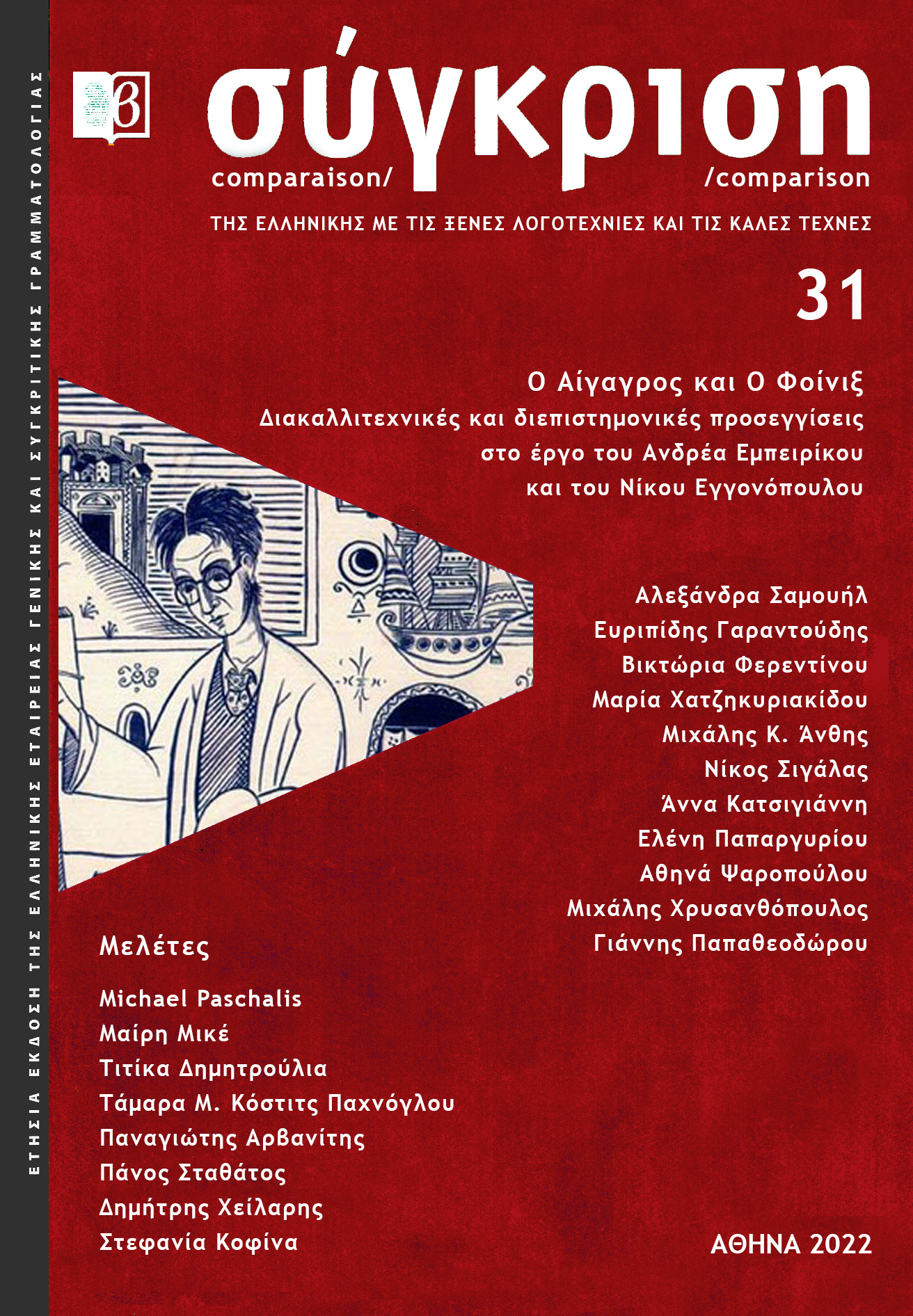ΜΙΧΑΛΗΣ ΧΡΥΣΑΝΘΟΠΟΥΛΟΣ, Υπερρεαλιστικά εγκώμια υπερρεαλιστών: Ανταγωνισμός μεταξύ Διοσκούρων;
Abstract
Surrealist “praises” (encomia) of surrealists: Empeirikos and Engonopoulos compete
The purpose of the paper is to explore the way the Greek surrealists, Andreas Empeirikos and Nikos Engonopoulos, use the form of the “praise” (encomium) in a fashion that relates to the Ancient Greek tradition and to its Renaissance revival (e.g. Erasmus, “Praise of Folly”), in order to establish the basic principles of their approaches, to deal with negative criticism of their work, to underscore the merits of the ideas and the work of their seniors, but, also, to playfully criticise them and, last but not least, to support and praise each other. The period examined in detail is that from 1935 to 1945, while emphasis is laid on Empeirikos’ long “praise” of Engonopoulos published in 1945, which redrew the rules. The surrealist “praise” is examined as a “agonistic” form, as a competition between poets and artists and as a defensive weapon against malevolent attacks from critics.
Article Details
- How to Cite
-
Χρυσανθόπουλος Μ. (2022). ΜΙΧΑΛΗΣ ΧΡΥΣΑΝΘΟΠΟΥΛΟΣ, Υπερρεαλιστικά εγκώμια υπερρεαλιστών: Ανταγωνισμός μεταξύ Διοσκούρων;. Comparison, 31, 108–119. https://doi.org/10.12681/comparison.31278
- Issue
- Vol. 31 (2022)
- Section
- Articles

This work is licensed under a Creative Commons Attribution-NonCommercial-ShareAlike 4.0 International License.
Authors who publish with this journal agree to the following terms:
- Authors retain copyright and grant the journal right of first publication with the work simultaneously licensed under a Creative Commons Attribution Non-Commercial License that allows others to share the work with an acknowledgement of the work's authorship and initial publication in this journal.
- Authors are able to enter into separate, additional contractual arrangements for the non-exclusive distribution of the journal's published version of the work (e.g. post it to an institutional repository or publish it in a book), with an acknowledgement of its initial publication in this journal.
- Authors are permitted and encouraged to post their work online (preferably in institutional repositories or on their website) prior to and during the submission process, as it can lead to productive exchanges, as well as earlier and greater citation of published work (See The Effect of Open Access).



